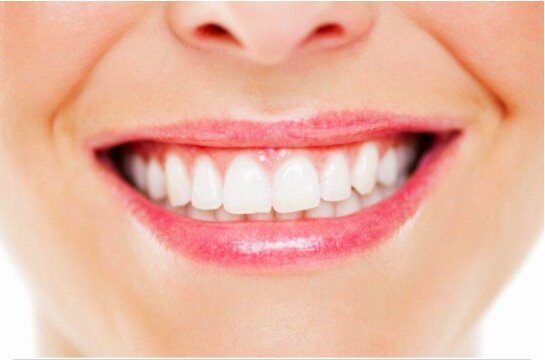
Dental tips & tricks
-
Brush
Brushing is the most important thing you can do for your oral health. Whether you like to use a manual toothbrush or a power toothbrush, a good technique drastically improves the efficacy of your brushing time. 2 minutes 2-3 times a day is best, and especially after sugary or carbohydrate rich foods and drinks. My favorite toothbrushes for most people are a soft or ultra soft…a medium or hard is just too aggressive for most gums and can cause damage. My favorite electric toothbrush is the Phillips Sonicare because it has patented sonic technology that has been proven to be most effective at plaque removal.
-
Floss
YES…we do need to floss! Unfortunately I can say that although there are some great alternatives to the good ol’ string, regular flossing is the best way to access that plaque between your teeth where your toothbrush can’t reach. I recommend a simple lightly waxed thin floss such as Johnson and Johnson regular waxed floss (mint is my fave). It is strong and slides easily between your teeth. I have included a basic flossing video (no not the dance move) and I would love to show you how when we have a an appointment!
-
Alternative Hygiene Aids
Some people who brush and floss unfortunately still have problems with their teeth and gums, so the use of additional tools is recommended. A combination of genetics, diet, health issues, medication side effects, complicated dental work like implants, crowns, bridges and missing teeth are all things that can that make it difficult to maintain good oral health with regular brushing and flossing alone. I love to recommend the waterpik, interdental brushes and my all-time fave…the sulcabrush. I will offer suggestions for additional tools specific to your needs!
-
What is the difference between plaque and calculus (tartar)
Tartar is what accumulates on your teeth when plaque is not removed. If plaque is left on your teeth for too long, it will harden into tartar and is much more difficult to remove. In fact, tartar can only be removed by a dental professional–you can't get rid of it with regular brushing and flossing. This is why it is best to stay on top of your daily routine to minimize this build up resulting in healthier check ups and less time in the dental chair! Both plaque and calculus can cause gum disease and decay due to high bacterial content. Some bacteria are more aggressive than others, and your body’s response to the bacteria also affects how these bacteria manifest in your mouth. Certain systemic diseases will affect how your body responds to these bugs as well as the reverse!
-
Toothpastes and rinses
Unless you have specific issues that need special attention, the type of toothpaste you use isn’t VERY important…the most important is your brushing technique. Saying that, if you are at high risk for decay, meaning you seem to get a lot of cavities it is important for you to use a toothpaste with a higher fluoride concentration such as Prevident 5000 by Colgate. Also, if you have very sensitive teeth (if eating ice cream or cold drinks feels painful) then sensitivity toothpastes like Sensodyne are advised and work quite well when used regularly. The most important thing to remember about therapeutic toothpastes is not to rinse them out! It is best to brush floss rinse and THEN apply the therapeutic toothpaste and spit out without rinsing for at least 30 minutes. Mouth rinses are also a great way to reduce bacteria or provide additional fluoride support. Sometimes patients will experience a condition called xerostomia (dry mouth) from things like medication side effects or radiation treatments. There are products designed to help with salivary flow such as Xylimelts and Biotene products that will improve oral lubrication and aid in the break down of plaque. If you are lucky enough not to have issues with decay, a natural toothpaste is fine too, such as Tom’s of Maine or Green Beaver. Tooth powders are also an excellent green product with minimal packaging that lasts a long time. The only caveat here is to be sure you have thick and strong gums as the powders are abrasive and again, can cause damage. Do not use if you have receeding gums!
-
Whitening
This is a topic I get asked about alot, and what I always tell patients is that if you have stable and healthy oral health, professional whitening may be a great treatment to perk up your smile with minimal expense, downtime or damage to your teeth. Most whitening systems are carbamide peroxide based and have little to no long term negative effects on your teeth or gums when used correctly. Ask your dentist about which whitening products they can offer!
You can also try using over the counter whitestrips, some patients achieve results they are happy with while others find they are not as effective. The professional whitening systems will definitely give you a better result as the ingredients are professional strength and trays fabricated for you and only your teeth, BUT, if you are looking for a little brightening, these may be all you need. You can always try them first as they are not a big investment, and if you aren’t satisfied, you can then move to professional system.
